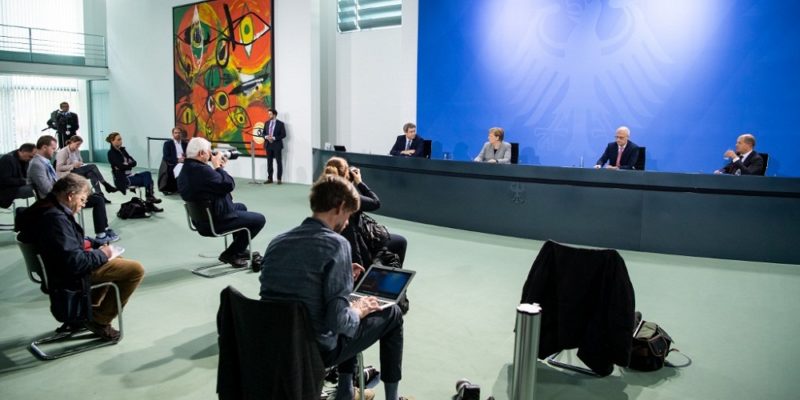Good practices for press conferences during COVID-19 pandemic

The European Federation of Journalists (EFJ) welcomes some good practices regarding the holding of press conferences during the COVID-19 pandemic. However, many countries are still restricting this democratic exercice under the pretext of ensuring the safety of journalists. The EFJ urges countries where journalists are not allowed to ask questions live to adapt in such a critical moment, for example with the use of video conferencing system.
While journalists should not expose themselves in crowded conference rooms, the EFJ reminds that it is equally important not to restrict press freedom and journalists’ ability to ask questions. Even during total lockdown, minimum service information must be assured to protect free flow of information and the citizens’ right to know.
Several countries have put in place systems which allow journalists to ask questions live when physical press conferences are not possible:
- In Denmark, officials give statement in one room, while the press is sitting (following social distancing rules) in another room. One by one, journalists can ask questions and get answers live.
- In Spain, journalists are now given five turns of live questions every day, taking into account that journalists who had not the possibility to ask their questions could do so the next day. This new system was put in place after strong criticism from journalists’ unions, who denounced the government’s attempt to take advantage of the pandemic to only answer selected questions submitted in writing beforehand, that were deemed ‘appropriate’.
- In Brussels, the midday briefing of the European Commission is now allowing journalists connected to the video conferencing system to ask questions live.
“Governments are obliged to provide reliable information in accessible formats to all. The right of access to information means that governments must be making exceptional efforts to protect the work of journalists. There are still problems in some European countries. In Serbia for example, journalists have to send their questions in writing beforehand. This is not an acceptable alternative to physical press conferences. Once again, we remind governments that the pandemic must not be used to restrict the free flow of information,” said EFJ General Secretary Ricardo Gutiérrez.






